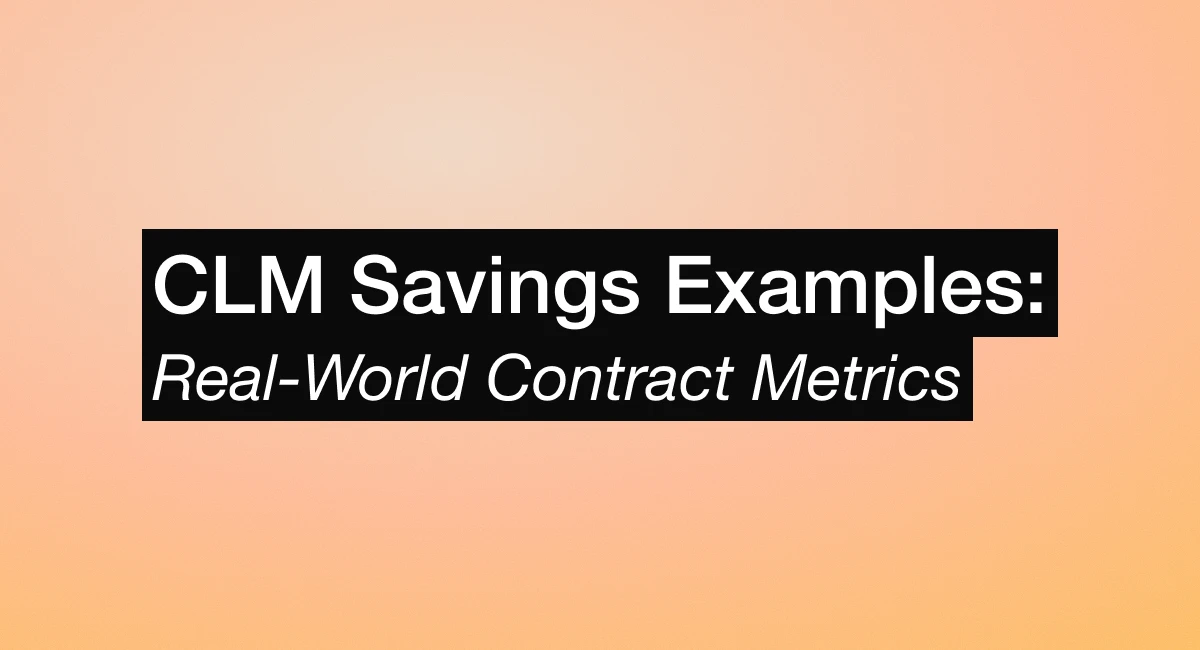Many legal departments have been embracing developing legal technology in various shapes and forms over the past few years. However, many companies have not quite grasped the value of how much these new tools can improve the way they do business.
Today we’re going to focus on a feature found in the more advanced contract management systems. That is, the ability to track contract data. When a company uses software to create and manage their legal contracts, they not only get an easy way to reduce time on contract creation and signing, but they also get many functions that can help shape their strategy.
What is contract tracking?
Contract tracking is when contracting software is able to automatically mark key pieces of data as soon as a contract is signed. Then it can connect that information to the company’s contract archive. The most common use of this data is to keep track of important contract milestones, such as renewal or renegotiation. But data analysis is capable of much more.
1. How does contract tracking reduce costs?
The data taken from agreements that companies make contain crucial information regarding the status of deals and the viability of the business. It also includes how to maintain ongoing relationships with business partners. Data analytics let companies and lawyers analyze and sort useful information they can use to make future decisions.
Instead of spending time going through countless agreements to find information, an all-in-one contract management system can find what you need in seconds. For instance, contracts of the same type for comparable language. Or even which contracts have been updated with the latest compliance laws. The information is immediately accessible, making it simple to update or send electronically to the correct people for review.
In order to reduce spend and increase revenue, contract tracking analysis can be used to quickly determine how many contracts did not result in any business or did not meet the standards of the agreement. For contracts of low value, or a drastic change in exchange rates and price variations, the decision can then be made to either forgo re-negotiation or renew with new terms. All while concentrating efforts toward more profitable and reliable business opportunities.
2. How do you measure a contract’s negotiation value?
In another way, companies can leverage contract data to measure not only their own performance, but legal trends that affect the organizations with which they do business. For example, are the terms set out in a contract current with the business goals? Contract tracking identifies areas where companies can reduce risk or find new opportunities.
On the topic of reducing risk, the software will streamline clause analysis to alert all contracts that may contain certain types of local and international regulations. Thus, your company will receive notice about risk-value contracts in industries that may have changing compliance requirements.
Another way to make decisions on what direction your company should take with already existing contracts is to determine the negotiation value of a contract. This can be based on how comparable contracts have performed. Analysis of past contracts of a similar nature will also give insight into ways to cut costs, with possible adjustments to purchase commitments. In this way, your business can make evidence-based decisions to repeat successes and eliminate future obstacles.
3. How does a contract management system help with fulfilling obligations?
Staying on top of agreed-upon terms and milestones is essential to keeping up your contractual obligations. A missed deadline or opportunity could result in a damaging relationship with a customer, fines or greater loss of revenue. However, a contract management system ensures that you never miss an important date regarding any obligations.
The ability to receive alerts for important contracting milestones saves a lot of time and stress over deadlines and reminders. In fact, with the right contracting system, you can set automated reminders for any additional users. Once added, they will have an overview of upcoming contract events in the shared dashboard. Best of all, when reminders are shared by more than one user, the chance of missing a deadline is almost non-existent.
Discover the possibilities
It’s clear that contract automation software provides numerous benefits when it comes to business strategies and efficiency. Managing obligations in an effective way saves significant time, while increasing the value of your contracts.
No matter the type or size of your business, automated contract tracking helps identify new possibilities, evaluates risk and gives your entire business long-term value. Contract and document automation software that tracks performance of contracts results in collaborative, long-term relationships with clients and cost savings.
Curious about what contract automation software with analytics and tracking capabilities can do for your business? Read more about automation features here.

